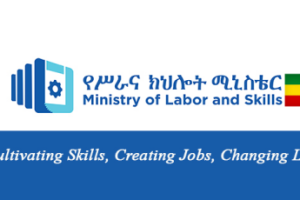
COMPILED BY DARGIE KAHSAY
Malaria can be considered the most notorious of all diseases as it has been killing thousands of people annually and keeping a lot more out of their jobs for the last thousands of years. Despite unreserved efforts, there was no preventive vaccine against this severe ailment.
This week, the World Health Organization (WHO) announced that it has recommended the widespread use of the RTS, S/AS01 (RTS, S) malaria vaccine among children in Sub-Saharan Africa and other regions with moderate to high P. falciparum malaria transmission. The recommendation, according to WHO, is based on results from an ongoing pilot program in Ghana, Kenya and Malawi that has reached more than 800 thousand children since 2019.
Annually, over 400 thousand people are dying due to malaria and over 200 million fall illness from malaria, according to Against Malaria Foundation. The foundation noted that over 70 per cent of the affecting people are children less than five years of age. It added that malaria is the number one killer of pregnant women, though malaria is preventable.
WHO Director-General, Dr Tedros Adhanom Ghebreyesus while announcing the first vaccine on malaria this week said that “this [the vaccine] is a historic movement. The long-awaited malaria vaccine for children is a breakthrough for science, children and malaria control.” He added that “using this vaccine on top of existing tools to prevent malaria could save tens of thousands of young lives each year,” the WHO website reported.
According to WHO, Malaria remains a primary cause of childhood illness and death in sub-Saharan Africa. More than 260 thousand African children under the age of five die from malaria annually.
WHO Regional Director for Africa, Dr Matshidiso Moeti on her part said following the announcement of the vaccine that “For centuries, malaria has stalked sub-Saharan Africa, causing immense personal suffering.” “We have long hoped for an effective malaria vaccine and now for the first time, we have such a vaccine recommended for widespread use. Today’s recommendation offers a glimmer of hope for the continent which shoulders the heaviest burden of the disease and we expect many more African children to be protected from malaria and grow into healthy adults.”
The WHO recommendation is for RTS, S, sold as “Mosquirix”, a vaccine developed by British drugmaker GlaxoSmithKline, according to Aljazeera. WHO argued that the organization recommends the widespread use of the vaccine based on the advice of two global advisory bodies of the organization, one for immunization and the other for malaria.
Hence, WHO recommends that the RTS, S/1S01 malaria vaccine be used for the prevention of P. falciparum malaria in children living in regions with moderate to high transmission as defined by the organization to support the comprehensive malaria control. The malaria vaccine, RTS, S/AS01, should be provided in a schedule of four doses in children from five months of age for the reduction of malaria disease and burden, the organization stated.
Malaria is far more deadly than COVID-19 in Africa, Aljazeera reported. It killed 386,000 Africans in 2019, according to a WHO estimate, compared with 212,000 confirmed deaths from COVID-19 in the past 18 months, it added. The WHO data indicated that 94 per cent of malaria cases and deaths happen in Africa, which is transmitted to people by the bites of infected mosquitoes.
The vaccine’s effectiveness at preventing severe cases of malaria in children is only about 30 per cent, but it is the only approved vaccine. The European Union’s drugs regulator approved it in 2015, saying its benefits outweighed the risks. “This is how we fight malaria, layering imperfect tools on top of each other,” said Ashley Birkett, who leads global malaria vaccine work at Path, a non-profit global health organization that funded the development of the vaccine with GSK and the three-country pilot, Aljazeera report indicated.
Another vaccine against malaria, developed by scientists at the UK’s University of Oxford and called R21/Matrix-M, showed up to 77 per cent efficacy in a year-long study involving 450 children in Burkina Faso, researchers said in April, but it is still in the trial stages.
The GSK (GlaxoSmithKline plc), producer of the vaccine welcomed the WHO recommendation about the vaccine. “This long-awaited landmark decision can reinvigorate the fight against malaria in the region at a time when progress on malaria control has stalled,” Thomas Breuer, chief global health officer, said in a statement.
According to Aljazeera, the vaccine may face funding challenges. Mobilizing finance for the production and distribution of the vaccine remains a challenge to reach the world’s poorest countries, experts said. GSK has to date committed to producing 15 million doses of Mosquirix annually, in addition to the 10 million doses donated to the WHO pilot programmes, up to 2028 at a cost of production plus no more than five per cent margin.
A global market study led by whom this year projected demand for a malaria vaccine would be 50 to 110 million doses per year by 2030 if it is deployed in areas with moderate to high transmission of the disease.
WHO stated that financing for the pilot program has been mobilized through an unprecedented collaboration among three key global health funding bodies: Gavi, the Vaccine Alliance; the Global Fund to Fight AIDS, Tuberculosis and Malaria; and Unitaid. For the implementation phase of the vaccine, it needs further cooperation to mobilize enough financial support to reach the affected societies especially in the developing countries, mainly African countries.
WHO underlined that the vaccine, RTS, S acts against P. falciparum, the most deadly malaria parasite globally, and the most prevalent in Africa, adding the malaria vaccine implementation program is generating evidence and experience on the feasibility, impact and safety in real-life, routing setting in selected areas. WHO reiterated that the pilot program will continue in the three pilot countries to understand the added value of the fourth vaccine dose, and to measure the longer-term impact on child deaths.
The RTS, S malaria vaccine is the result of 30 years of research and development by GSK and through a partnership with PATH, with support from a network of African research centres, the UN health agency noticed.
The GAVI vaccine alliance, a global public-private partnership, will consider in December whether and how to finance the vaccination programme.
“As we’ve seen from the COVID vaccine, where there is political will, there is funding available to ensure that vaccines are scaled to the level they are needed,” said Kate O’Brien, director of WHO’s Department of Immunization, Vaccines and Biologicals.
A source familiar with planning for the vaccine’s development said the price per dose was not yet set, but would be confirmed after GAVI’s funding decision and once there is a clear sense of demand for the vaccine. The WHO also hopes this latest recommendation will encourage scientists to develop more malaria vaccines.
Scientists and health experts still warned that society in the vulnerable areas to continue using the previous protection measures even after the vaccine start distribution to the society.
The Ethiopian Herald October 9/2021





